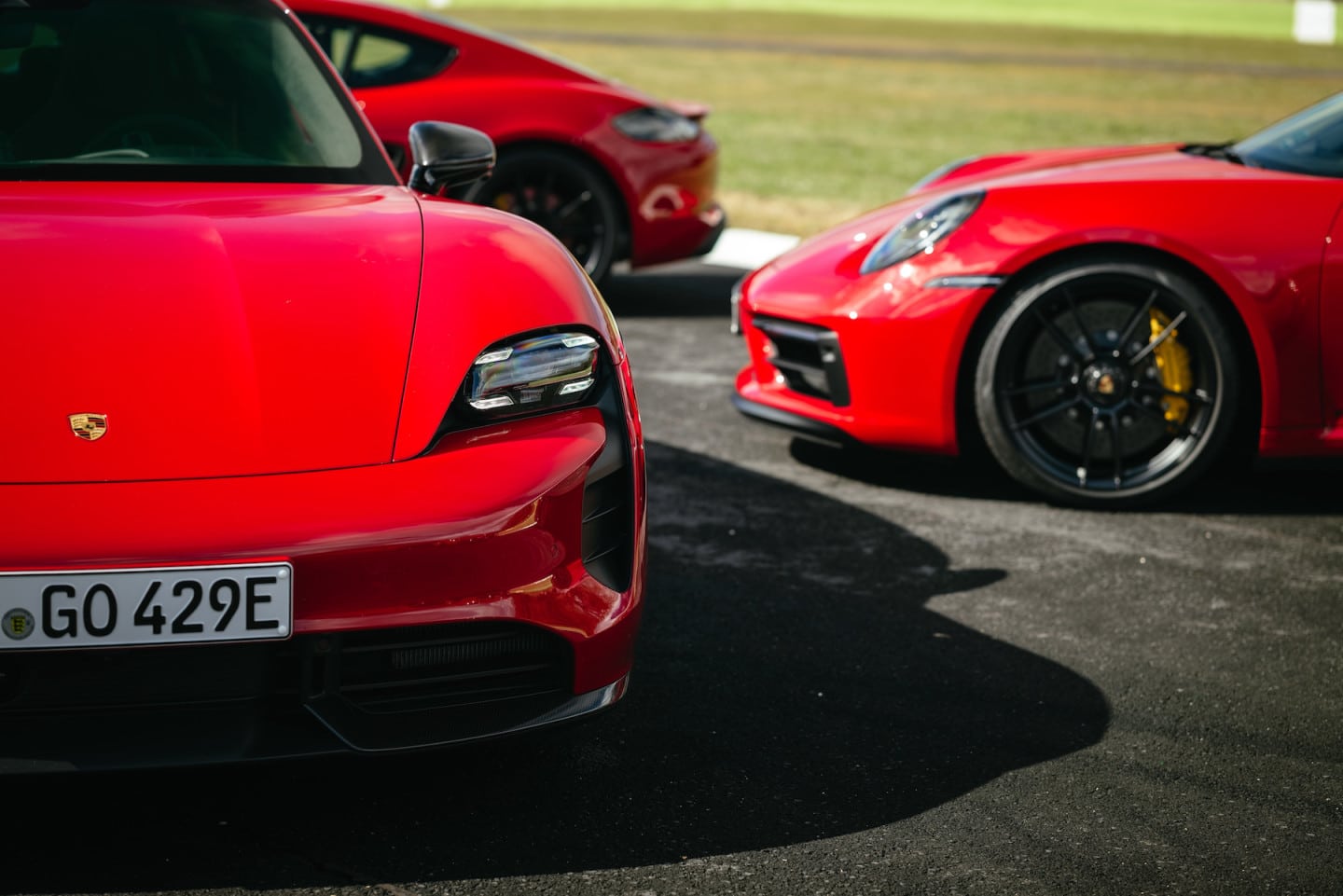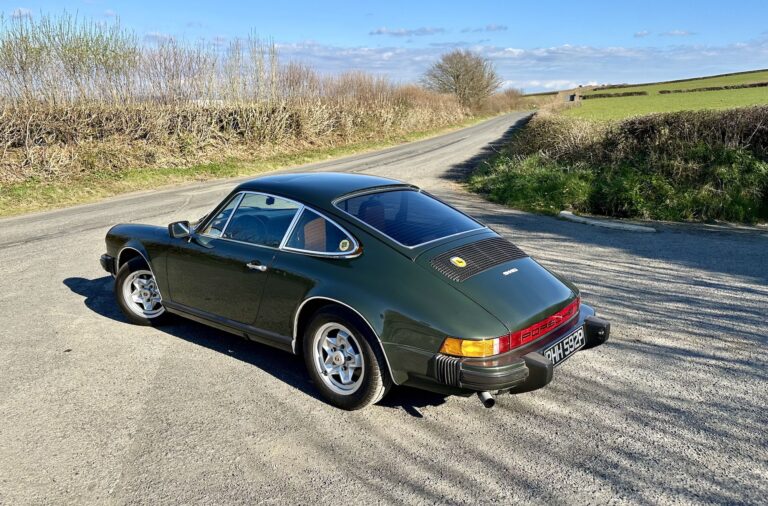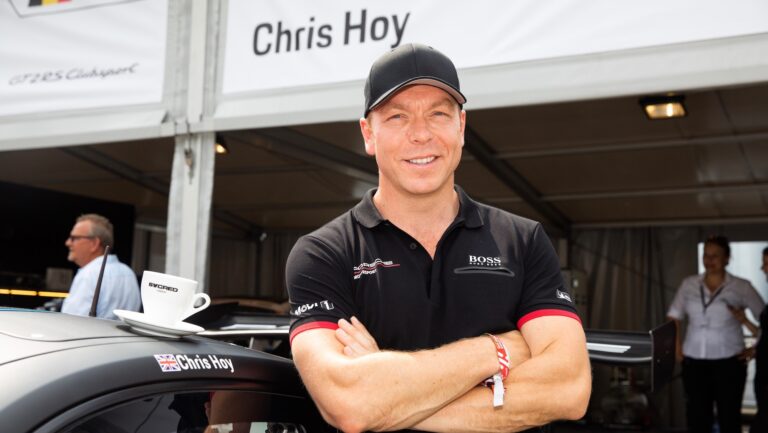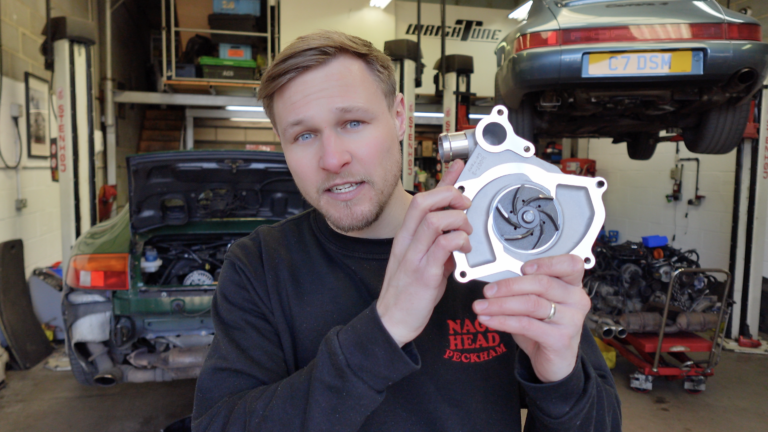 By Tim Pitt
2 years ago
By Tim Pitt
2 years ago
5 reasons why now is a great time to refinance your Porsche
With economic storm clouds brewing, an expert explains how refinancing your Porsche could save you money
Bought your Porsche on finance? You’re not alone. More than 90 percent of new cars sold in Britain are now paid for on a monthly basis – via personal contract purchase (PCP), hire purchase (HP), leasing or a loan – in a consumer finance market worth £37 billion a year.
Many of us can’t afford to buy a Porsche outright, so spreading the cost makes sense. Whether your sights are set on a classic Carrera or a new GT3 RS, finance can help you realise your dream.
However, after years of cheap credit, the market is changing. Interest rates are on the rise, lending protocols are tightening, used car values look unsteady and the general economic outlook is bleak. Against this backdrop, the time is right for another look at your loan agreement. Securing a new deal could help you weather the financial storm.
For an expert view, we spoke to Gerard Liddon, an independent broker with more than 25 years of experience in the industry. His company, Rare Car Finance, is affiliated with 9WERKS classified partner Jonathan Franklin Cars, and offers lease purchase finance on high-value vehicles.
“We’ll look at any Porsche from £50,000 upwards, be it an SUV or a racing car,” Gerard explains, with recent finance deals including a 997 GT3 RS 4.0, 959 and Carrera GT. With his vast experience working with a panel of lenders, Gerard is ideally placed to offer five key reasons why you should really consider refinancing your Porsche now:
1. Fixing your finance deal now could protect you against future rate rises
Interest rates are the proportion of the total finance amount that is charged to the borrower. The base rate is set by the Bank of England; if this rises, asset lending costs also go up.
“We’ve got a generation of people who’ve enjoyed 10-plus years of really low interest rates,” says Gerard. “The Bank of England base rate is currently 3.0 percent. It was 2.25 percent quite recently and just 0.1 percent a year ago. It will possibly go up again soon, too.”
These higher rates feed into the cost-of-living crisis, making mortgages, energy bills, food and practically everything else more expensive. So financing a car not only costs more, you potentially have less disposable income to fund it.
Categories
2. Porsche dealer finance is more expensive
Official Porsche Centres, or OPCs, offer a variety of finance products. The most common option is a personal contract purchase, or PCP. This allows the customer to hand the car back at the end of an agreed term – or keep it if a final, pre-agreed ‘balloon payment’ is paid.
The basic rate for Porsche finance increased to 11.9 percent in December, making borrowing costs much higher than in recent memory. As Gerard points out, you could finance (or refinance) your Porsche outside the dealer network to find a cheaper deal.
“We’re a broker, so we look at lots of different banks and rates. Porsche’s in-house finance doesn’t have that flexibility. We recently offered somebody a rate of 9.0 percent on a GT3, as opposed to 11.9 percent from the OPC,” says Gerard. On a car costing six figures, those few percentage points soon stack up, so using a broker helps you shop around for the best deal.
3. Banks are already becoming more reluctant to lend
Remember the financial crisis of 2007-2008? One major cause was US banks offering mortgages to less creditworthy borrowers – so-called ‘subprime’ lending. However, as soon as economic conditions worsened, banks were far more reluctant to lend money.
With household incomes falling in real terms, and Britain heading into a possible recession, the banks are becoming more cautious again. This could make it harder for you to secure a finance deal for your Porsche.
Gerard’s advice is to speak to a broker now, rather than waiting until later in 2023. “We’ll take a look at your previous three months of bank statements to assess what you can afford. Think of it as a health check. It’s best not to bury your head in the sand or you could risk losing the car.”
4. Beat the balloon payment
If you have a PCP deal, the final balloon is only a concern if you plan to keep the car. If not, you can simply hand it back and, as long as you have looked after it and stayed within the agreed mileage limit, there should be nothing more to pay. With lease purchase, which is more common for used cars and ‘investment’ vehicles, you will either have to pay the balloon or refinance the car.
“If your balloon payment is due in 2023,” says Gerard, “you could pre-fix a refinance rate now. We can only guarantee interest rates for a month, but you should look into renewing finance at least three months before your agreement ends.” Bottom line: if your bills are increasing and you will struggle to stump up the balloon payment, you need to take action.
5. The value of your Porsche could be falling
Hoping to buy a new Porsche? Be prepared to be patient. Supply problems caused by the semiconductor shortage and the war in Ukraine (among other issues), have led to waiting times of up to 18 months, depending on the particular model you choose.
This has had a knock-on effect on used car prices, which Gerard says have been “incredibly high” ever since the Covid pandemic in 2020. However, as the supply chain slowly returns to normal, used car values are likely to soften. The exceptions will probably be rarer cars with provenance, along with certain classics.
That could be bad news if you plan to sell your Porsche, or bought it for investment purposes. But refinancing the car based on a lower market value might reduce your monthly costs and the balloon payment, so there are some positives as well. Why not start by emailing gerard@rarecarfiannce.com to discuss your options?





















